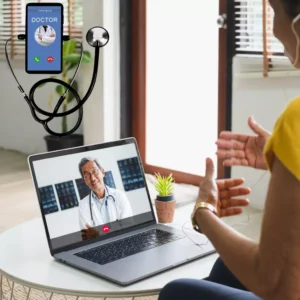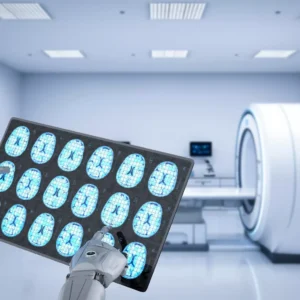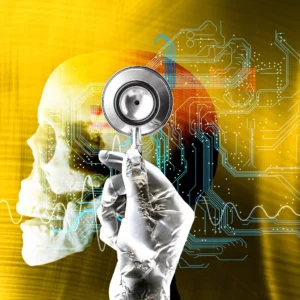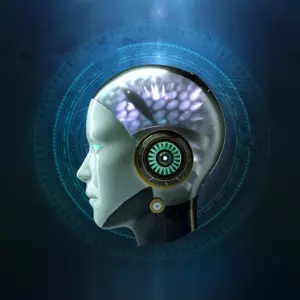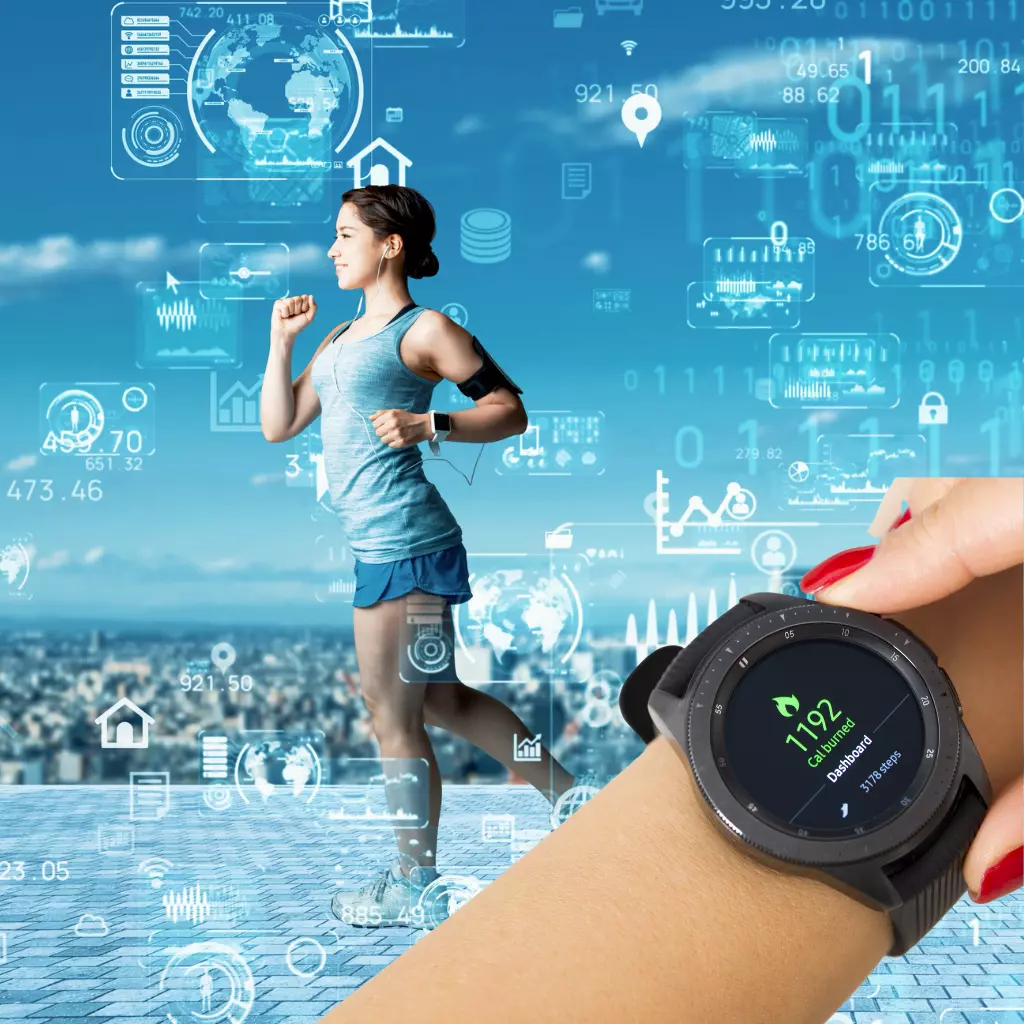
Wearable Health Tech
AI-driven health wearables
The health sector is in the midst of a technological revolution, and at its heart are AI-driven health wearables. These tiny marvels are not just about counting steps or monitoring heart rates anymore.
They’re intelligent, predictive, and personalized. With the power of artificial intelligence, these gadgets can offer insights once reserved for lengthy doctor appointments or intricate medical tests. They’re transforming our approach to fitness, chronic disease management, and overall health awareness.
But with great power comes great responsibility; how do these wearables ensure our data remains private? How are they influencing the economic landscape of healthcare? Strap in as we embark on a journey to unravel the intricate tapestry of wearables in today’s health sector and glimpse the future landscape. Welcome to the wearable revolution!
Table of Contents

Arindam Roy
An Automation Consultant with 25+ years of IT Experience
Forbes Articles related to AI usage in Healthcare:
The Wearable Revolution
The world has witnessed an unparalleled surge in wearable technology in recent years. Gone are the days when wristwatches merely showed time; today’s AI-driven health wearables are nothing short of miniaturized medical laboratories. They monitor, analyze, and advise, turning masses of data into actionable health insights.
This revolution was not just by chance. An ageing global population, coupled with an increased focus on wellness, created a ripe environment. Now, wearable devices offer more than just basic vitals. From tracking sleep patterns to gauging UV exposure, they provide a holistic view of one’s health.
But, the seamless integration of artificial intelligence genuinely makes these devices transformative. With predictive analytics, wearables don’t just report; they predict. They foresee potential health concerns before they become problems, offering users a proactive approach to their health.
Moreover, these devices are becoming instrumental in remote patient monitoring and chronic disease management, ushering in a new era in healthcare. The wearable revolution is not just about tech-savvy gadgets; it’s about empowering individuals, reducing healthcare burdens, and paving the way for a healthier tomorrow.
How AI is Enhancing Wearables
Wearable technology, in its infancy, was predominantly about primary data collection. Enter artificial intelligence, and the game has changed entirely. AI-driven health wearables have turned these devices into intelligent health guardians capable of deciphering complex health patterns.
The magic of AI in these gadgets is multi-dimensional. First, predictive wearables analytics has allowed them to anticipate health risks, offering users the chance to address concerns before they escalate. Imagine a device that can warn you of a potential heart irregularity or an impending migraine based on your vitals.
Furthermore, AI’s capacity to process vast amounts of data quickly means that personalized health insights are now a reality. Your wearable can advise you on diet, exercise, and mental wellness based on your unique health profile.
Another frontier is wearables in remote patient monitoring. Through AI, doctors can receive real-time data, making telehealth more effective. The feedback loop between wearables and healthcare professionals ensures timely interventions and better patient outcomes.
AI has transformed wearables from passive data collectors to proactive health consultants. We’re no longer just wearing tech but donning intelligent health partners.
Personalized Health Recommendations
The realm of healthcare is vast, and what works for one individual might not work for another. AI-driven health wearables are here to bridge this gap, offering solutions tailored for the individual, not the crowd.
One of the most revolutionary features of these devices is their ability to digest vast amounts of user data, from sleep cycles to activity levels. Based on this information, wearables can generate personalized health insights. These insights pave the way for bespoke health advice suited to a user’s unique physiological makeup and lifestyle.
Imagine a wearable suggesting a specific type of meditation based on your stress levels or recommending a dietary change based on your metabolic rates. With the fusion of AI and predictive analytics, these suggestions are now personalized towards you.
But it doesn’t stop there. As these devices integrate more with our daily lives, they understand our routines, preferences, and moods. This deeper understanding means more nuanced health advice, from tailored workout plans to sleep schedules adjusted to your circadian rhythm.
In short, thanks to AI’s prowess, the era of one-size-fits-all health recommendations is on the wane. Welcome to the age of personalized health empowerment.
Chronic Disease Management and Wearables
Managing chronic diseases can be a relentless journey, fraught with continuous monitoring, medication, and lifestyle adjustments. However, the advent of AI-driven health wearables sets a new trajectory for this challenge.
The core strength of these devices in chronic disease management lies in their ability to monitor vital metrics consistently. For a diabetic patient, having a wearable that tracks glucose levels and predicts spikes can be life-changing. Similarly, continuous heart rate and blood pressure monitoring can be invaluable for someone with heart issues.
Yet, it’s about more than just real-time data. With the integration of AI, these wearables provide predictive analytics, offering a glimpse into potential future complications. This proactive approach allows patients to take preventive measures, often reducing hospital visits and emergencies.
Moreover, wearables in remote patient monitoring are increasingly playing a pivotal role. Healthcare providers can get real-time patient updates, enabling timely interventions and medication adjustments. The resulting continuous care often translates to improved patient outcomes and quality of life.
The synergy of wearables and AI is reshaping chronic disease management. Patients are now equipped with tools that don’t just respond but also foresee, making the journey a tad less daunting.
Fitness Tracking and AI Insights
AI-driven health wearables have dramatically reshaped the realm of fitness. What was once about merely recording physical activity has transformed into a sophisticated dance of tracking, analyzing, and advising.
The vast amount of data these devices can capture is at the heart of this evolution. From heartbeats to footsteps, everything is recorded. Raw data is valuable, but refined data is invaluable. Wearables with AI-powered predictive analytics can identify fitness trends, optimize routines, and prevent injuries.
AI-powered fitness trackers provide personalized health insights based on individual data, tailoring suggestions to unique bodies and goals. Have you ever had a fitness tracker suggest a hydration boost after a particularly sweaty run? Or recommend a cool-down exercise after an intense workout. That’s AI in action, personalizing your fitness journey.
The seamless blend of AI and fitness tracking is more than just a technological marvel; it’s a testament to how personalized and precise our approach to health can be. We’re no longer just ‘working out’. With AI-driven insights, we’re embarking on tailor-made fitness journeys sculpted just for us.
Data Security and User Privacy
In the age of AI-driven health wearables, where vast troves of personal health data are continuously collected, the issue of data security and user privacy takes centre stage. As these devices become intricately woven into our lives, the implications of potential data breaches become even more profound.
While the benefits of wearables are undeniable, concerns over data privacy in health wearables have been rising. Personal health information is sensitive; these details can paint a vivid picture of an individual’s life, from heart rates to sleep patterns. In the wrong hands, such data can lead to privacy invasions or be used maliciously.
Did you know that manufacturers of AI-powered fitness trackers and other health wearables are taking privacy concerns seriously? They are implementing advanced encryption protocols, anonymization techniques, and secure data storage solutions to protect your health information well. Plus, you can decide what data you want to share and with whom. So, you can rest assured knowing that your health data is in safe hands.
Moreover, with the advancement in AI, there’s a push towards edge computing – processing data on the device rather than sending it to a central server. This reduces transmission risks and offers an added layer of security.
As the wearable tech landscape evolves, a balance between innovation and privacy is imperative. Ensuring user trust isn’t just ethical; it’s pivotal for the industry’s sustained growth.
Economic Implications of the Wearable Boom
The surge in AI-driven health wearables isn’t just a technological phenomenon; it’s an economic tidal wave, reshaping industries and generating new avenues of growth. As these devices carve their niche in our daily lives, their financial footprints become increasingly significant.
To begin with, the direct market for health wearables is booming. Estimates suggest a multibillion-dollar industry driven by consumer demand and the push for preventive healthcare. As a result, new jobs emerge, from design to marketing, boosting the economy.
Yet, the ripples of this boom extend beyond device sales. Consider the data these gadgets generate. This goldmine of information has birthed an entire industry around data analytics. Companies now specialize in extracting, processing, and interpreting vast amounts of data from wearables in remote patient monitoring and fitness tracking.
Additionally, the healthcare sector stands to gain tremendously. With wearables aiding chronic disease management, there’s potential for cost savings in long-term patient care. Fewer hospitalizations and doctor visits translate to reduced healthcare spending.
However, on the flip side, there are concerns about the economics of AI wearables becoming exclusionary, potentially widening health disparities if not accessible to all socio-economic groups.
The wearable boom is more than just tech advancement; it’s a significant economic player, bringing opportunities and challenges.
Integration with Healthcare Systems
The ascension of AI-driven health wearables isn’t just a standalone triumph. Their real potential unfurls when they seamlessly integrate with larger healthcare systems, forming a cohesive ecosystem that prioritizes patient well-being.
A primary advantage of this integration lies in bridging the gap between patients and healthcare providers. Wearables in remote patient monitoring enable doctors to access real-time health data, offering insights without frequent in-person visits. This is transformative for patients living in remote areas or with mobility challenges.
Moreover, the continuous data flow from these devices to healthcare systems allows for proactive interventions. AI algorithms can identify anomalies or potential health risks, alerting the patient and the healthcare provider. This ensures timely medical intervention and shifts the focus from reactive to preventive care.
However, a robust infrastructure is vital for this integration to be effective. Ensuring data compatibility, building secure transmission channels, and training medical staff to interpret data from AI in fitness trackers and other wearables are crucial steps.
In summary, while AI-driven wearables are revolutionary in their own right, their actual value emerges when they become integral cogs in the expansive machinery of healthcare, enhancing patient care, reducing costs, and elevating overall health outcomes.
Case Study: AI Wearable Success
Imagine Jane, a 45-year-old with a family history of heart conditions. She invested in one of the latest AI-driven health wearables to monitor her heart health proactively. This fitness band uses advanced AI algorithms to detect early cardiac anomalies.
The device, thanks to its predictive analytics in wearables, within weeks of use, flagged a potential irregularity in her heart rhythm. The data, effortlessly integrated with her health provider’s system, was promptly reviewed by her cardiologist. It turned out Jane was exhibiting early signs of arrhythmia, a condition she wasn’t previously aware of.
Prompt medical intervention followed. Jane’s condition was managed effectively, with lifestyle recommendations and medication, all fine-tuned based on her wearable’s personalized health insights. Had she not had this device, Jane might have remained oblivious to her condition until it possibly worsened.
This success story underscores the transformative power of wearables, significantly when augmented by AI. Not only do they serve as health trackers, but they could be lifesavers in cases like Jane’s. It’s a testament to these devices’ potential, spotlighting their role as gadgets and pivotal healthcare allies.
The Future Landscape
As we peer into the horizon, the potential of AI-driven health wearables appears boundless. Once seen as fitness companions, these devices are on the verge of becoming indispensable healthcare tools, fundamentally altering our relationship with personal health and wellness.
One can anticipate a future where wearables go beyond monitoring basic vitals. With advancements in AI, they might predict more complex health issues even before noticeable symptoms emerge. Predictive analytics in wearables could reach a point where they not only track but also provide real-time solutions, like suggesting breathing exercises when stress levels spike.
Furthermore, wearable tech in chronic disease management will likely see exponential growth. Devices tailored for specific conditions, offering personalized health insights, can pave the way for more precise and effective treatments.
But the journey will be challenging. As these devices become more advanced, ensuring data privacy in health wearables will be paramount. Manufacturers and healthcare systems will need to prioritize trust and transparency above all.
Ultimately, the fusion of AI and wearables heralds a new dawn in healthcare. While promising, the future also demands collaboration, innovation, and a shared vision for a healthier, tech-empowered world.
Conclusion
The journey through AI-driven health wearables has been nothing short of transformative. From their pivotal role in the wearable revolution to their integration with healthcare systems, these devices are redefining personal health. With predictive analytics in wearables, users receive personalized health insights, allowing for proactive health management like never before.
Whether it’s aiding chronic disease management or powering up your fitness regime through AI insights in fitness trackers, the versatility of these wearables is undeniable. Their potential, especially in remote patient monitoring, highlights a future where medical care is more accessible and personalized. But as we embrace this tech evolution, the imperatives of data security and user privacy can’t be stressed enough.
Moreover, the economics of AI wearables speaks volumes of their market influence, transforming industries and creating new economic opportunities. A blend of challenges and opportunities awaits as we approach the future landscape. It promises further integration, innovations, and a broader impact on global healthcare.
AI wearables aren’t just gadgets; they’re the heralds of a healthcare renaissance, pointing the way to a more informed, health-conscious, and tech-integrated world.
Related Articles
- AI in Telehealth: Revolutionizing Remote Care
- Navigating the Next: AI’s Role in Healthcare Predictive Analytics
- Transforming Medical Imaging with AI Capabilities in Radiology
- AI in Genetic Data Analysis: Personalizing Medicine
- AI in Diagnostics: A New Era of Precision and Accuracy
- Smart Hospitals: The Role of AI in hospital operations
- Mental Health Tech: AI-powered Mental Health Apps for Assessment and Therapy
- AI-Powered Drug Discovery: A Revolution in Pharma
- Medical Robots Enhanced by AI: Transforming Surgeries and Care
- Wearable Health Tech: AI-driven health wearables
- AI’s role in chronic disease management
- Neural Interfaces and AI: Bridging Minds and Machines
- Digital Health Platforms: The Power of AI Integration
- AI in Epidemiology: Predicting and Controlling Outbreaks
- AI in Rehabilitation: Personalized Recovery Pathways
- AI in Predictive and Preventive Care: A Proactive Approach
- AI in Home Healthcare: Personal Health Management
- Revolutionise Healthcare with IPA Tools: Streamlining Processes, Improving Efficiency, and Enhancing Patient Care
- Other Articles on AI Usage in Healthcare
- Other Articles on AI usage in different industries

